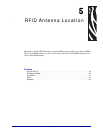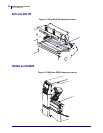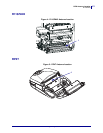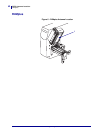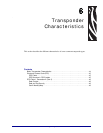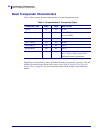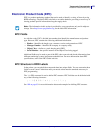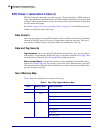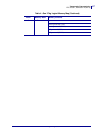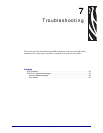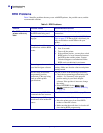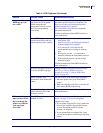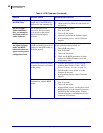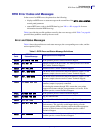
Transponder Characteristics
EPC Class 1, Generation 2 (Gen 2)
46
58978L-008 Rev. A RFID Programming Guide 11/14/2008
EPC Class 1, Generation 2 (Gen 2)
EPC Gen 2 tags offer advantages over other tag types. The tag identification (TID) memory in
a Gen 2 tag includes the chip manufacturer and model number information, which can be used
to identify which optional features are present on the tag. These optional features include those
for data content and security.
See Table 9, Supported Tag Types and Default Values, on page 111 for the UHF printers and
firmware versions that can use Gen 2 tags.
Data Content
Gen 2 tags typically have a 96-bit EPC identifier, which is different from the 64-bit identifiers
common in early EPC tags. Gen 2 tags also support much larger data structures. The size of
user memory available (if any) varies by the model and manufacturer of the tag.
Data and Tag Security
Tag Passwords You can set optional 32-bit passwords that allow you to access tag data, to
lock tag data, or to permanently disable (kill) a tag. Use the ZPL command ^RZ on page 120 to
set the passwords (if desired) and ^RF on page 96 to read the passwords.
Data Locking Options User-allocated memory can be safeguarded with flexible locking
options using ^RZ on page 120. For example, you can lock a tag’s blank memory to prevent it
from being encoded accidentally and later unlock it for writing. A permanent locking feature
prevents rewriting of tag data.
Gen 2 Memory Map
Table 4 shows how information is stored on a Gen 2 tag.
Table 4 • Gen 2 Tag Logical Memory Map
Bank Memory Bank
Memory Contents
3User
…
2TID
…
TID (15:0)
TID (31:16)
1EPCEPC (15:0)
…
EPC (N:N-15)
PC (15:0)
CRC-16 (15:0)




